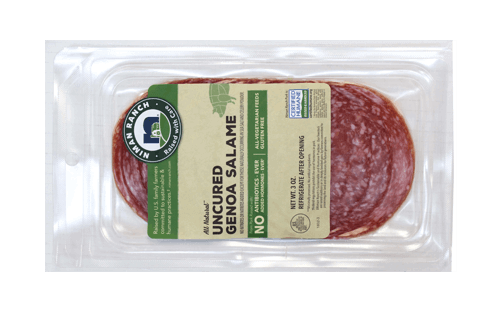This farmer profile was written by Niman Ranch partners Food Tank, Finding Balance as a Sixth-Generation Pig Farmer. Food Tank is a research and advocacy nonprofit organization devoted to storytelling that highlights how food and agriculture can be the solution to some of our most pressing environmental and social problems.
Aaron Williams was ready to leave his hometown of Villisca, Iowa, after high school.
“Being a naive kid, living in rural America…you get burned out on a community that you know everybody in and you don’t take it for what it is. Now, I realize how cool that is,” says Williams.
Today, he’s a sixth-generation pig farmer partnering with Niman Ranch.
Williams attended Iowa State University and intended to find an office job to build a traditional career. He quickly realized that wasn’t the path for him after working a couple of internships. By his senior year, Williams was trying to figure out how to return home and take over the family farm. Luckily, his father was just about to retire.
“To be a farmer, the biggest issue is having resources of land, machinery, and facilities. I’m exponentially lucky that my dad and my grandpa have those facilities, and the land is there for me to take over,” says Williams. “Going into it as a first-generation farmer, it would be crazy hard.”
Williams, his wife Hannah, and their toddler Lyle now live on Williams Family Farms, sustainably and humanely raising pigs and farming about 400 acres of cropland. But Williams says that the only way he was able to come back to the farm full-time was by partnering with Niman Ranch, a network of more than 600 small and mid-size independent farmers and ranchers across the United States.
“The best thing about Niman Ranch is how transparent they are. They’ve been in business for 25 years, they are very stable. Their support system with their field agents is great. A lot of their customers are very passionate about using their products,” says Williams.
Williams says that partnering with Niman Ranch is a great option for any beginning farmer, “because you can buy 10 acres, put up a few hoop barns, raise pigs, still have a full-time job, and then just slowly grow that if you want to.”
Williams was able to take advantage of Niman Ranch’s Next Generation Foundation Scholarship for financial aid during his time at Iowa State University. Later, he received financial assistance from Niman Ranch’s grant program as well as U.S. Department of Agriculture Farm Service Agency loans, which he recommends to other young and beginning farmers.
Williams’ father was the eighteenth farmer to join the Niman Ranch network in 1998, so Williams grew up raising pigs “the Niman way,” which means allowing pigs to root, roam, socialize, play, and exhibit their natural behaviors. He continued the family tradition and within five years of taking over the family farm, he had quadrupled the size of his father’s business in terms of pig production.
“This is when I was single and 22 years old. I was just working [on the farm] all the time and loved it. And then I got married and started a family, and those 80-hour work weeks were not as enjoyable,” says Williams. “I was seeing that I could get burned out at some point too, and then not enjoy what I was doing.”
With the support of a guaranteed market for his product through Niman Ranch, and its network of resources, Williams recently cut back on his pig production. Now, he enjoys a healthy balance of time between farming and his young family.
“It’s not healthy to be on the farm 365 days a year…even if you love it, it’s still not healthy,” says Williams. “It’s good to get away for even a short weekend. I think that makes you enjoy what you do even more.”
But Williams knows that partnerships like Niman Ranch aren’t the industry norm. He recently became an ambassador for the company, because “if you want the business to do well, then you need to be part of the business and help them sell your product.” He travels across the country to talk with grocery store customers, chefs, and eaters about why he farms sustainably and humanely.
“It seems simple, but eating is something that you do three or four times a day…you should care what’s going into your body, that it’s a good product, that it’s safe, and that it’s healthy for you,” says Williams.
